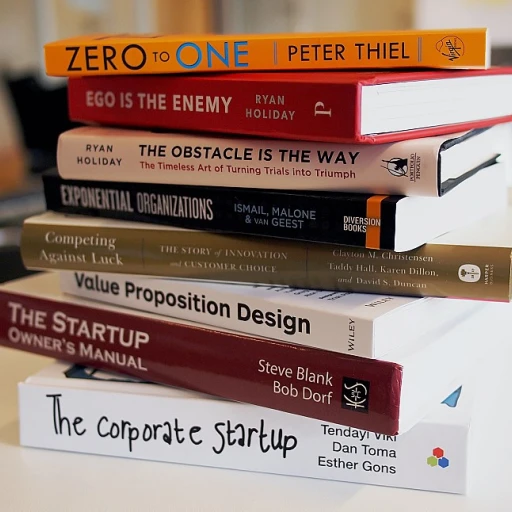
Understanding the Role of MOOCs in Continuous Learning
The Importance of MOOCs in Lifelong Learning
Massive Open Online Courses (MOOCs) have become pivotal in reshaping the landscape of continuous learning, providing an expansive and flexible approach to education. These courses, offered by various platforms, cater to students and professionals seeking comprehensive learning experiences at no cost or minimal fees. With an abundance of opportunities to learn from prestigious institutions, MOOCs allow learners to explore various subjects—ranging from "how to learn German" to advanced courses in myriad domains. They are an integral part of a digital educational ecosystem that supports personal and professional development. The strengths of MOOCs lie in their ability to offer open access to knowledge, often without geographical constraints. In Germany, MOOC platforms like iversity present a Gateway to higher education. They emphasize the value of online learning not only for academic purposes but also for practical applications in professional spaces. Despite the availability of free online courses, the scope extends to structured programs for committed learners. These online platforms offer courses aligned with the demands of modern industries and societal needs, as they have catalyzed a shift towards greater learning accessibility. MOOCs are also optimizing the use of digital resources such as audio books, video lectures, and interactive assignments. This digital emphasis allows students to pace their learning journeys effectively. For those focused on language learning, MOOCs provide specific paths to learn German, enhancing both language skills and cultural understanding. As these platforms offer free courses, they stand as a popular choice for individuals who aspire to further their careers or expand their knowledge base without substantial financial investment. These open online courses thus align perfectly with the modern educational imperatives of affordability, flexibility, and inclusivity. MOOCs are undeniably an empowering resource for many, opening avenues for educational excellence and personal growth. Unlocking the power of an online course in fields such as electricity and magnetism exemplifies how these platforms provide real-world applicable knowledge. As MOOCs continue to evolve, their role in continuous learning is set to expand, addressing the diverse needs of learners around the globe.Overview of Leading German MOOC Platforms
Leading Platforms for Online Education in Germany
Germany has significantly embraced the digital revolution in education, offering a variety of platforms for MOOCs (Massive Open Online Courses) that cater to diverse learning needs. These platforms provide enormous opportunities for students, professionals, and enthusiasts to engage in continued learning, often free of charge. Let’s examine some of the major players in the German MOOC landscape.- iversity: Originally gaining traction in 2013, iversity has become a prominent name in the online education sector within Germany. It provides a broad array of courses, covering subjects from business administration to humanities. Iversity prides itself on facilitating a practical learning experience through courses that integrate real-world applications and are often created in collaboration with higher education institutions and industry experts.
- Open Course World: Known for its comprehensive range of free courses, Open Course World aims to offer quality education without geographical constraints. Learners can enroll in various topics, including German language courses, allowing non-native speakers to learn German in a structured and engaging manner. This platform is especially beneficial for students looking to enhance their skills without spending money.
- Hochschulforum Digitalisierung: While not a traditional MOOC platform, the Hochschulforum Digitalisierung initiative plays a pivotal role in shaping online education policies and supporting digital learning development across German universities. It not only offers insights on the state-of-the-art educational technologies but also aids German universities in optimizing their MOOC offerings for better accessibility and quality.
Comparing German MOOC Platforms to International Counterparts
Evaluating the Comparative Landscape of MOOCs
The world of online courses is thriving with a multitude of platforms offering diverse opportunities for learners. When looking at German MOOCs in particular, it's crucial to understand how they stand in comparison to international counterparts, considering factors like course quality, language options, and platform accessibility. One of the prominent aspects of German MOOC platforms is their focus on providing a broad range of subjects, including specialized topics relevant to the German language and culture. This allows learners to engage in courses such as learning German or exploring German language literature, setting a unique niche apart from platforms with more generalized offerings. Internationally, platforms like Coursera and edX are renowned for their vast array of partnerships with top universities and a comprehensive catalog across multiple fields. German platforms, such as iversity, cater not only to personal enrichment but also to professional development, offering free courses, as well as paid options that are often more affordable than some international platforms. For learners, the cost-effectiveness of German MOOCs is a significant advantage. Many of these courses are available free of charge, which democratizes access to education and promotes lifelong learning. This is consistent with trends in higher education, where institutions strive to reach a global audience without financial barriers. When comparing user experience and engagement, international platforms often come ahead with their advanced digital tools and robust support for multimedia content like video lectures and audiobooks. However, German MOOC platforms are rapidly catching up by integrating innovative learning features and enhancing their course design, as these adjustments appeal to a diverse group of students. In conclusion, while differences do exist between German MOOC platforms and their global peers, each has carved out its strengths and niches. By embracing their unique cultural and educational frameworks, German MOOCs continue to contribute significantly to the landscape of online learning. For an exploration of future trends in German MOOCs, diving into success stories from these platforms provides inspiration and insight into what lies ahead. For professionals looking to expand their skill set through focused courses, exploring programs such as the Young Executive Program offers valuable insights into enhancing career growth through continuous learning strategies.Challenges Faced by German MOOC Platforms
Obstacles in the Adoption of German MOOCs
The integration of MOOCs into the German educational landscape has encountered various challenges. Despite the potential of online courses to revolutionize education, there are several hurdles that these platforms must overcome to achieve widespread adoption and impact. Firstly, the language barrier presents a significant challenge. While many German platforms offer content aimed at those looking to learn German, their reach is limited outside the German-speaking world. For instance, learners from different linguistic backgrounds might find it difficult to engage with courses offered in the German language, thus reducing the global appeal of these offerings. Secondly, the concept of MOOCs is relatively new in Germany, compared to international counterparts. As a result, there is a varying level of acceptance among students and educators. Traditional university education holds a strong position in Germany, and some are skeptical about the quality of open online education compared to established higher education institutions. This skepticism can deter learners from exploring new educational platforms. Moreover, digital infrastructure limitations can also pose a problem. Although the "free of charge" model of many MOOCs is appealing, consistent and high-quality access to digital learning resources is not always guaranteed in some areas. This can hinder the accessibility of online education for students who are keen on pursuing open courses, particularly in rural or under-equipped regions. Finally, there is a need for better recognition of digital course credentials in the job market. Employers often value traditional degrees from renowned universities over MOOC certifications. This gap in validation translates into fewer incentives for learners to engage in online learning, as they may question the long-term benefits of MOOCs in advancing their careers. Addressing these challenges could significantly enhance the effectiveness of MOOCs in Germany and open up valuable opportunities for learners seeking flexible and diverse educational alternatives.Success Stories from German MOOC Learners
Achievements of Learners Who Embraced German MOOCs
German platforms offering Massive Open Online Courses (MOOCs) have witnessed an impressive roster of success stories from learners across the globe. These platforms, dedicated to providing top-notch education online for free, have proven to be a transformative force in the realm of digital learning. Students participating in courses ranging from German language learning to advanced higher education subjects have significantly benefited from the vast array of resources provided.
The cross-cultural allure of these platforms thrives on their innovative delivery of multilingual content. Learners have thrived by accessing open online German courses, be it to immerse themselves in learning the intricate nuances of the German language or to deep dive into specialized fields offered by leading universities. The success of many students is often attributed to the flexible nature of German MOOCs, which accommodates the varied lifestyle and pace preferences of participants.
Free online offerings have enabled non-traditional learners, including adult students and working professionals, to pursue education without compromising their daily commitments. These courses have not only been pivotal in personal development but also in career advancements, helping learners acquire new skills relevant to their professional growth.
Notably, platforms such as iversity have become a beacon for those desiring an open, accessible, and comprehensive educational experience. Their unique blend of offering both free courses and premium learning pathways fosters a progressive and inclusive digital education environment. Learners often have shared their journeys of transitioning from basic to advanced courses, honing not just academic knowledge, but also gaining cultural and digital literacy.
Throughout these MOOCs, learners have effectively utilized a plethora of online resources, including audio books and interactive multimedia tools, to reinforce their knowledge. Listening to the experiences of these learners reveals a common theme: a newfound confidence that transcends beyond online learning, influencing real-world problem-solving and intellectual curiosity.













